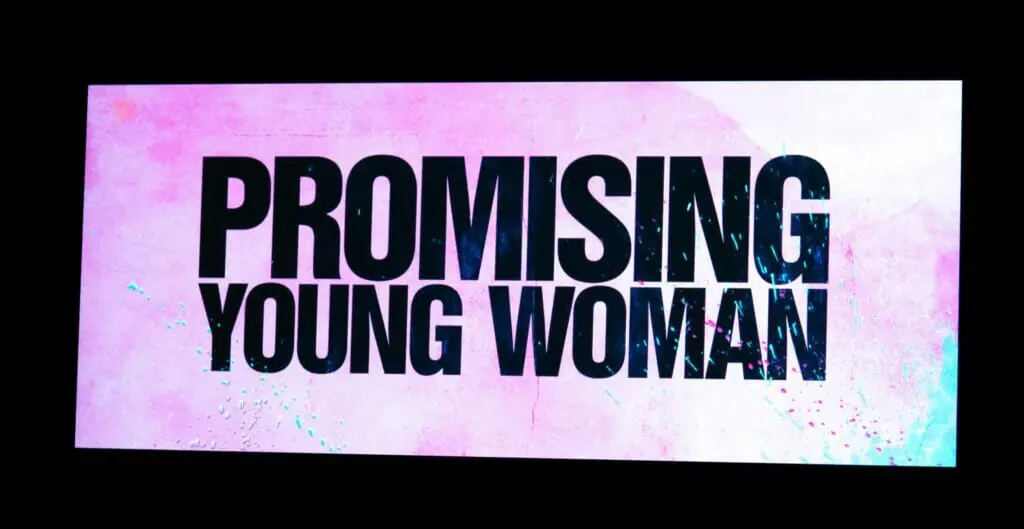Editor’s note and trigger warning: This article deals with sexual assault, trauma, suicide and violence against survivors. Additionally, two lines in this article have been edited from the original version in issue 153-11 to respect and maintain the author’s desired tone for the article.
The first thing I did after watching the 2020 film Promising Young Woman was look up movie reviews.
Reading reviews is something I often do after watching movies. This time, though, my experience was a little different than usual. It was hard to stop shivering and focus my eyes on the screen. While some reviewers deemed the film and its themes important, I wonder: who is it important for?
Plot and reactions

First of all, skip this paragraph if you don’t want spoilers on plot events. Promising Young Woman follows Cassie, a woman still living with her parents, as she attempts to catch men who take advantage of intoxicated women. We discover later she is doing this to avenge her best friend, Nina, who was assaulted by a fellow student at the medical school they attended together; an experience that pushed Nina to die by suicide. Cassie finally finds the man who assaulted her friend and, pretending to be a stripper for his bachelor party, arrives to seek revenge. But in a moment where we might expect Cassie to succeed, the man kills her instead. Until the very end of the movie, it seems he might actually get away with it.
I am a survivor of sexualized violence. It has taken me a while to come to terms with this, which is also the reality for many survivors. We are often are blocked from understanding our trauma is acceptable. We repeat — in our heads and to others — phrases like, “this isn’t that bad,” or “others have it worse” and “it doesn’t count if I gave in.” In other cases, we are systemically or socially blocked from speaking about our experiences. We hear again and again from social media and other online platforms sentiments such as, “you were asking for it” and “that doesn’t really count.”
With all that in mind, I don’t feel like my needs as a survivor are reflected in this movie, and perhaps I’m not the only one who feels this way.
The film demonstrates how assailants can act and look like anyone: attractive, nice, funny people and anyone in between. It shows how trauma from an assault can stay with you and take over your life. The film reveals how often justice is exceptionally hard to come by. But I know all of this, and I’m sure many other survivors know this too. I don’t want to watch this story, though a revenge fantasy might take the edge off. But instead, this movie simply reminds survivors of loss and injustice by reflecting this reality back at us. The only character attempting to find some justice, in this particular film universe, is eventually killed by those same assailants.
“I want to speak to sexualized violence survivors directly: This movie and its tragedy does not define you.”
For some, this ending is tragic, important and true. For me, it is yet another rape narrative leaving us survivors with less than nothing, not even bits of escapism where we can find refuge.
The film also doesn’t explore the complexities of what can constitute rape. It doesn’t explore why, according to the Rape, Abuse and Incest Nation Network (RAINN), eight out of 10 rapes are committed by someone known to the victim. The film doesn’t consider how sexualized violence disproportionately affects certain groups more than others along gender and race lines. For example, according to RAINN, Indigenous Peoples in America are twice as likely to experience sexual assault compared to all other races. RAINN also says transgender, genderqueer and gender nonconforming (TGQN) college students are more likely to be sexually assaulted than non-TGQN students. Overall, it seems the film’s creators did not take into consideration all the nuances of sexualized violence and how a tragic narrative like this one could retraumatize its viewers.
What to take away
I want to speak to sexualized violence survivors directly: This movie and its tragedy does not define you. Sexualized violence is horrific, but there are communities and supports available for you to draw on. It is not inevitable you will end up like Cassie or Nina. And lastly, I believe you.
If you have experienced sexual assault or harassment, take a moment to consider if this movie is worth the watch.
If you are a survivor or are looking for support around experiences of sexualized violence, there are several relevant resources at Dalhousie University and the University of King’s College. King’s has a Sexualized Violence Prevention and Response Officer, Jordan Roberts (jordan.roberts@ukings.ca; 902-229-6123), who assists survivors through any disclosure or reporting process they’re interested in. Dal students can contact the Human Rights and Equity Services (HRES) for reporting options (902-494-6672). The HRES also has a new project called PEGaSUS where they hold weekly online discussions for adult sexual assault survivors. The free six-week program continues this term until March 3, 2021.


Recent Comments